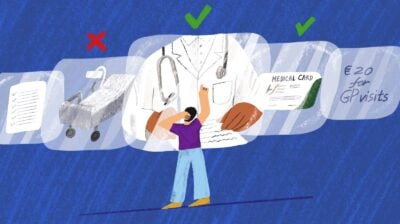All you need to know about Asthma
Find out more about identifying your triggers

Asthma is a common chronic disease which inflames the airways. The airways are the small tubes that carry air in and out of the lungs. Asthma causes the airways to become oversensitive and react to things they wouldn’t normally react to, such as cold air or dust mites and even family pets. These are called triggers.
When asthma symptoms are triggered, the muscles around the wall of the airways tighten, making them narrow. The lining of the airways also swells and sticky mucus is produced, clogging up the already narrowed airways. With the airways narrow and clogged with mucus, it becomes difficult to breathe.
Symptoms of asthma
Asthma symptoms can vary from person to person. You may have one symptom or a combination of symptoms. Asthma symptoms are one or any combination of the following:
Coughing
A dry cough that wont go away is a symptom of asthma and often occurs at night or during exercise.
Wheezing
A wheeze is a whistling sound that happens when air is breathed through narrowed airways. If you notice a whistling sound when you breath, you could be suffering from asthma.
Chest tightness/Shortness of breath
Asthma can cause your airways to swell, resulting in a tight sensation on your chest and shortness of breath.
If you recognise any of these symptoms, you should visit your doctor who will assess your symptoms.
Who develops asthma?
Anyone can develop asthma. Asthma is a very common, in fact it is the most common chronic disease in Ireland. Asthma can start at any time of life, although it usually starts in childhood. Asthma can sometimes run in families and is linked to other conditions such as eczema and hay fever.
Asthma Triggers
When you come into contact with certain things they can make your asthma worse. These are called triggers. It can be difficult to figure out what is triggering your asthma. To help find out what your triggers are you should keep an asthma diary or Asthma Action Plan. In it you should record the times, places and what you are doing when your asthma gets worse.
Asthma triggers include:
- Air Pollution
- Cigarette Smoke
- Colds and Flu
- Exercise
- Hormones
- House Dust Mite
- Medication
- Occupations
- Pets
- Pollen
- Spores
- Weather Changes
Diet and Asthma
If you have asthma, it is important to have a healthy diet consisting of a variety of nutritious food. Research has shown that modern diets, which include higher levels of processed foods, vegetable oils and salt and lower levels of fruit, vegetables and oily fish than before, are not good for asthma. These types of diet have contributed to the rise in the level of asthma in Ireland and can make asthma symptoms worse. In particular, being overweight will have a negative impact on your asthma control.
To make sure your diet is healthy, use the food pyramid for a guide to the types of food and portions you should eat. Your diet should include lots of food from the bottom of the pyramid, such as breads, cereals, fruit and vegetables, as well as dairy, lean meat and fish. Food from the top of the pyramid, such as sweets and cakes should not be eaten every day.
How to treat asthma
There are a variety of different treatments and medications for asthma. Some, called relievers, work to relieve your symptoms when they happen, while others, called controllers, help to control your symptoms and stop them happening.
Different types of inhalers
Reliever inhalers are used whenever you get asthma symptoms or if you are having an asthma attack.
Controllers are important for managing your asthma. Use your controller inhaler every day, even when feeling well. Controller medication contains a steroid called corticosteroid.
Combination inhalers give you a dose of a reliever medication and a dose of controller medication at the same time.
Tablets for asthma
Leukotriene Receptor Antagonists Tablets – help stop the natural chemicals in your airways that can cause them to narrow and become inflamed.
Theophyline Tablets – widen your airways and reduce inflammation.
Controller or Steroid Tablets work to reduce the inflammation in your airways.
It is important to take your medication as prescribed. Talk to your doctor, nurse, pharmacist or call the Asthma Adviceline on 1850 44 54 64 if you have any questions.
Asthma Action Plans
Once you have been diagnosed with asthma, your doctor or nurse can help you develop an Asthma Action Plan. An Asthma Action Plan will have all the information you need to keep your asthma under control. Your Asthma Action Plan will include the following information:
- A list of your medications and when to take it
- How to tell if your symptoms are getting worse
- What to do when your symptoms get worse
- A list of your triggers, vaccinations and the asthma education you have received
- What to do if you have an asthma attack
- Important contact information, such as your GP and emergency contacts.
The Asthma Action Plan needs to be filled out by a health care professional. You can get a free Asthma Action Plan by calling The Asthma Society of Ireland on 018178886. If you are concerned about your asthma or wish to speak to nurse about your symptoms you can call the Asthma Society of Ireland advice line on 1850 445464 to set up an appointment.






